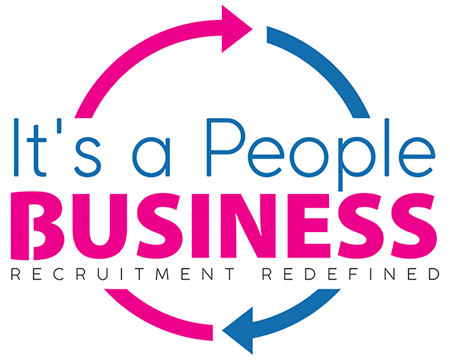And why business owners need to ensure it.
And why business owners need to ensure it.

Achieving a healthy work-life balance is essential for both personal and professional wellbeing. In today's fast-paced work environment, it can be easy to become consumed by work and neglect other aspects of life. It can sometimes feel like an elusive goal, especially in the current fast-paced, technology-driven work environment. Many people find themselves clocking in more and more hours at work, sacrificing personal time and leisure activities in order to stay ahead of the curve. However, studies have shown that an unhealthy work-life balance can take a toll on mental and physical health, leading to issues such as burnout and decreased productivity. They further indicate that dedicating time to personal activities and relationships can actually boost productivity and overall job satisfaction. Therefore, promoting a healthy work-life balance has become an important goal for companies and individuals alike.
Read More: Mastering Talent Acquisition: Strategies and Best Practices for Recruiting Top Candidates
To promote a healthy work-life balance, companies can implement policies such as flexible work schedules, remote work options, and encouraging employees to take breaks and vacations. Individuals can also take steps to prioritise their personal life, such as setting boundaries and limits on work hours, scheduling time for hobbies and relaxation, and seeking support from friends and family. By prioritising both work and personal life, employees can experience greater happiness and fulfilment in all aspects of their life.
Prioritise self-care and healthy life-choices.
In this blog post, we will explore the benefits of a balanced life, and provide tips and strategies for promoting work-life balance in your own career. From setting realistic goals and boundaries, to implementing effective time management techniques and cultivating healthy habits, there are many ways to create a more sustainable and fulfilling work-life balance. By prioritising self-care and creating a healthier relationship with work, individuals can increase their overall well-being, while companies can benefit from higher productivity and retention rates. Additionally, talking openly about work-life balance issues and normalising healthy habits can help create a more supportive culture in the workplace.
1. Establish Flexible Working Arrangements
1. Establish Flexible Working Arrangements
Encouraging work-life balance for employees is vital for the overall productivity and success of a company. One of the most effective ways to achieve this is by establishing flexible working arrangements. This can include offering remote work options, flexible hours, part-time or reduced hours, job sharing, and compressed workweeks. By providing employees with the flexibility to balance their personal commitments with work requirements, employers can improve employee engagement, satisfaction, and retention.
Lower the level of work-related stress.
Lower the level of work-related stress.
Studies have shown that employees who have flexible working arrangements report higher levels of job satisfaction, better mental health, and reduced stress, which ultimately translates into better work quality and productivity. It's important for employers to assess their company's needs and the feasibility of implementing these arrangements to ensure a successful work-life balance initiative.
2. Encourage Employees to Take Time Off
2. Encourage Employees to Take Time Off

Read More: The Future of Work: Predictions for Online Recruitment in the Next Decade
Encouraging work-life balance for employees is crucial for maintaining a healthy and productive workforce. One effective strategy to promote work-life balance is to encourage employees to take time off. Time away from work allows employees to recharge and come back with fresh ideas and energy, leading to increased productivity and job satisfaction. It also helps prevent burnout and reduces stress, which can lead to both physical and mental health issues.
Cultivate a positive and supportive work culture.
Cultivate a positive and supportive work culture.
As an employer, offer paid time off and flexible scheduling options, and actively encourage employees to take advantage of them. This can include reminding team members to take breaks throughout the day and to use their allotted vacation time. By prioritising work-life balance, employers can cultivate a positive and supportive work culture that benefits both employees and the organisation as a whole.
3. Prioritise Wellness and Self-Care
3. Prioritise Wellness and Self-Care

Encouraging work-life balance for employees is an essential aspect of any company's success. Prioritising wellness and self-care is a great way to achieving this balance. Encouraging employees to take breaks, engage in relaxation techniques, practice mindfulness, and other forms of self-care can improve their overall well-being and reduce stress. This can also lead to increased employee productivity, as they are more energised, focused, and motivated.
Show your commitment to your employees well-being.
Show your commitment to your employees well-being.
Read More: Mastering the Main Stages of Any Recruitment Discussion: A Practical Guide for Employers
Wellness programs can also be implemented that offer services such as gym memberships, wellness coaching, and health assessments. By prioritising wellness and self-care, companies can demonstrate their commitment to their employee's health and well-being, resulting in overall job satisfaction and a happier, more productive workforce.
4. Enhance Communication and Collaboration

Encouraging work-life balance for employees can lead to various benefits for both the team and the company as a whole. Improved communication and collaboration is one such benefit as it can enhance productivity, reduce stress, and foster a positive workplace culture. By providing employees with resources and tools that enable them to communicate effectively and collaborate seamlessly, managers can create an environment where people feel supported and motivated to achieve their goals.
Open communication makes people feel valued.
Open communication makes people feel valued.
This can be achieved through regular team meetings, encouraging open communication, allowing for flexible work arrangements, and investing in digital solutions that foster collaboration among team members, no matter where they are located. By prioritising communication and collaboration, companies can help employees manage their workload, navigate work-related challenges, and ultimately achieve a better work-life balance.
5. Offer Mental Health Resources
5. Offer Mental Health Resources

Encouraging work-life balance for employees is essential for maintaining a healthy and productive workforce. One aspect of work-life balance that is often overlooked is mental health. Providing mental health resources in the workplace is crucial for promoting overall well-being and reducing stress levels among employees. This can include offering an employee assistance program (EAP) that provides free short-term counselling, resources for mental health self-care, and referrals to outside mental health providers.
Develop a positive company culture.
Develop a positive company culture.
In addition, companies can consider implementing mental health days or allowing for flexible schedules to accommodate mental health needs. Providing mental health resources not only benefits individual employees but also contributes to a positive company culture that prioritises the well-being of its staff.
Read More: The Benefits of Working with a Flat Fee Recruiter
In conclusion
Promoting work-life balance is crucial for maintaining overall well-being and productivity in both personal and professional life. When employees can manage their work and personal responsibilities in a balanced manner, they are more focused, motivated, and committed. Employers should encourage a supportive work culture that prioritises employee health, mental and physical, through flexible schedules, adequate resources, and various policies that enable employees to maintain a healthy work-life balance. Ultimately, it's necessary to realise that work-life balance isn't just a matter of convenience, but it's crucial for sustainably achieving goals, preventing burnout, and ensuring long-term success.
Reach out to It's a People.Business for expert guidance and support in implementing these best practices. Our team of recruitment professionals can help you develop a cost-effective and efficient hiring strategy that aligns with your business goals. Contact us today to learn more and take the first step towards building a strong and talented team for your small business.
